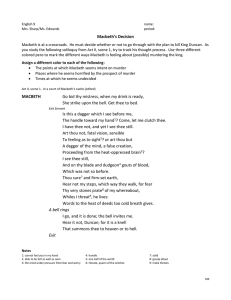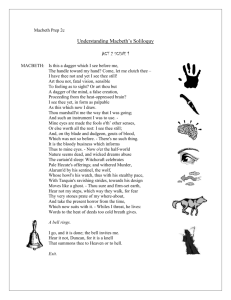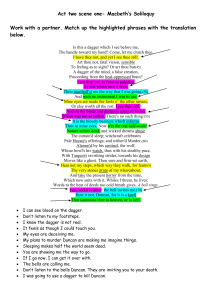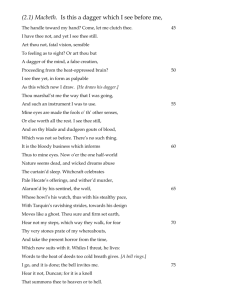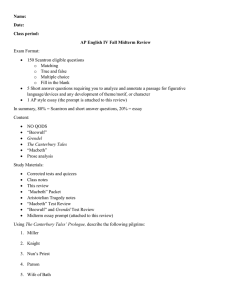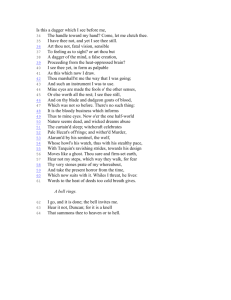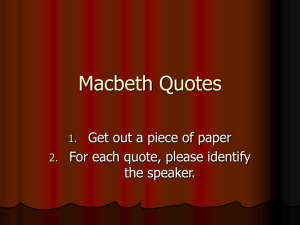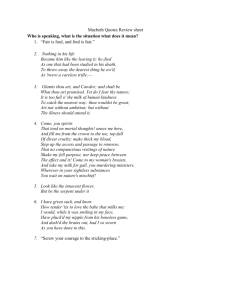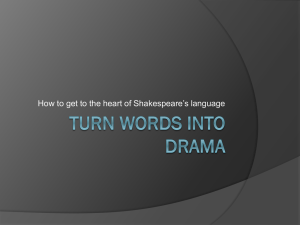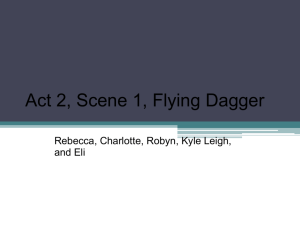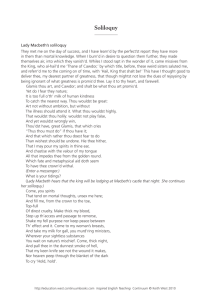2.1 Macbeth - The Dagger Soliloquy.doc
advertisement
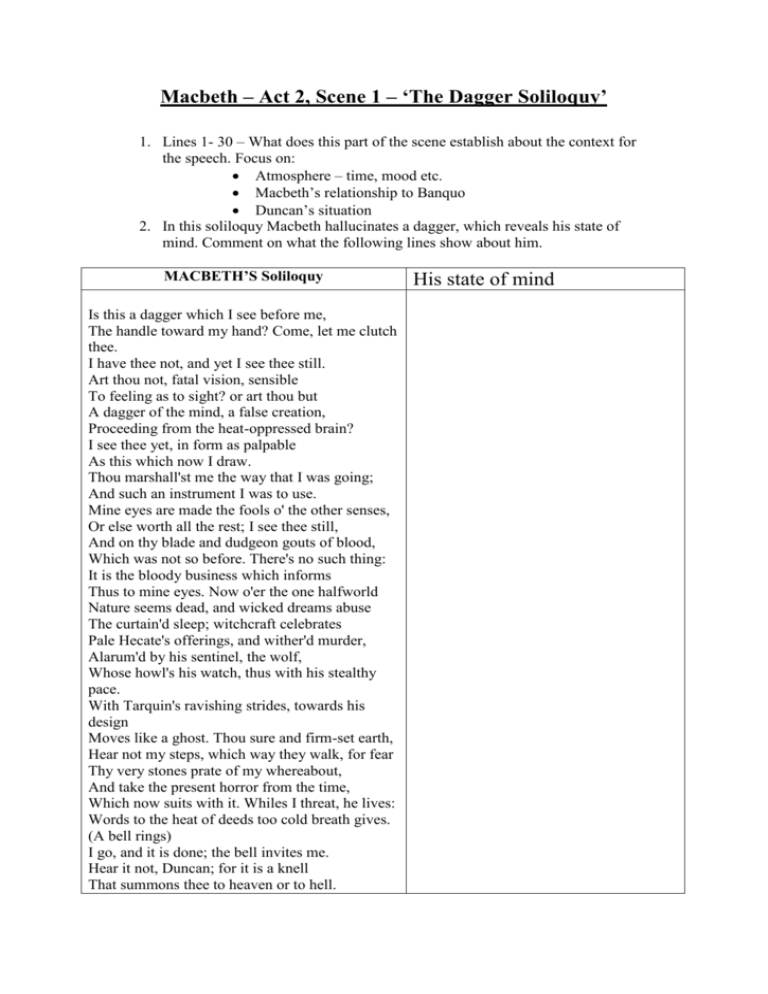
Macbeth – Act 2, Scene 1 – ‘The Dagger Soliloquy’ 1. Lines 1- 30 – What does this part of the scene establish about the context for the speech. Focus on: Atmosphere – time, mood etc. Macbeth’s relationship to Banquo Duncan’s situation 2. In this soliloquy Macbeth hallucinates a dagger, which reveals his state of mind. Comment on what the following lines show about him. MACBETH’S Soliloquy Is this a dagger which I see before me, The handle toward my hand? Come, let me clutch thee. I have thee not, and yet I see thee still. Art thou not, fatal vision, sensible To feeling as to sight? or art thou but A dagger of the mind, a false creation, Proceeding from the heat-oppressed brain? I see thee yet, in form as palpable As this which now I draw. Thou marshall'st me the way that I was going; And such an instrument I was to use. Mine eyes are made the fools o' the other senses, Or else worth all the rest; I see thee still, And on thy blade and dudgeon gouts of blood, Which was not so before. There's no such thing: It is the bloody business which informs Thus to mine eyes. Now o'er the one halfworld Nature seems dead, and wicked dreams abuse The curtain'd sleep; witchcraft celebrates Pale Hecate's offerings, and wither'd murder, Alarum'd by his sentinel, the wolf, Whose howl's his watch, thus with his stealthy pace. With Tarquin's ravishing strides, towards his design Moves like a ghost. Thou sure and firm-set earth, Hear not my steps, which way they walk, for fear Thy very stones prate of my whereabout, And take the present horror from the time, Which now suits with it. Whiles I threat, he lives: Words to the heat of deeds too cold breath gives. (A bell rings) I go, and it is done; the bell invites me. Hear it not, Duncan; for it is a knell That summons thee to heaven or to hell. His state of mind 3. a)What does the dagger symbolise in this speech? b) Does Macbeth control his own actions or is he being controlled? Give evidence. c) What aspects of his language symbolise evil? 4. Extension – to what extent could you argue that Macbeth is not responsible for his actions in this speech? 5. What dialectical movement is set up?
